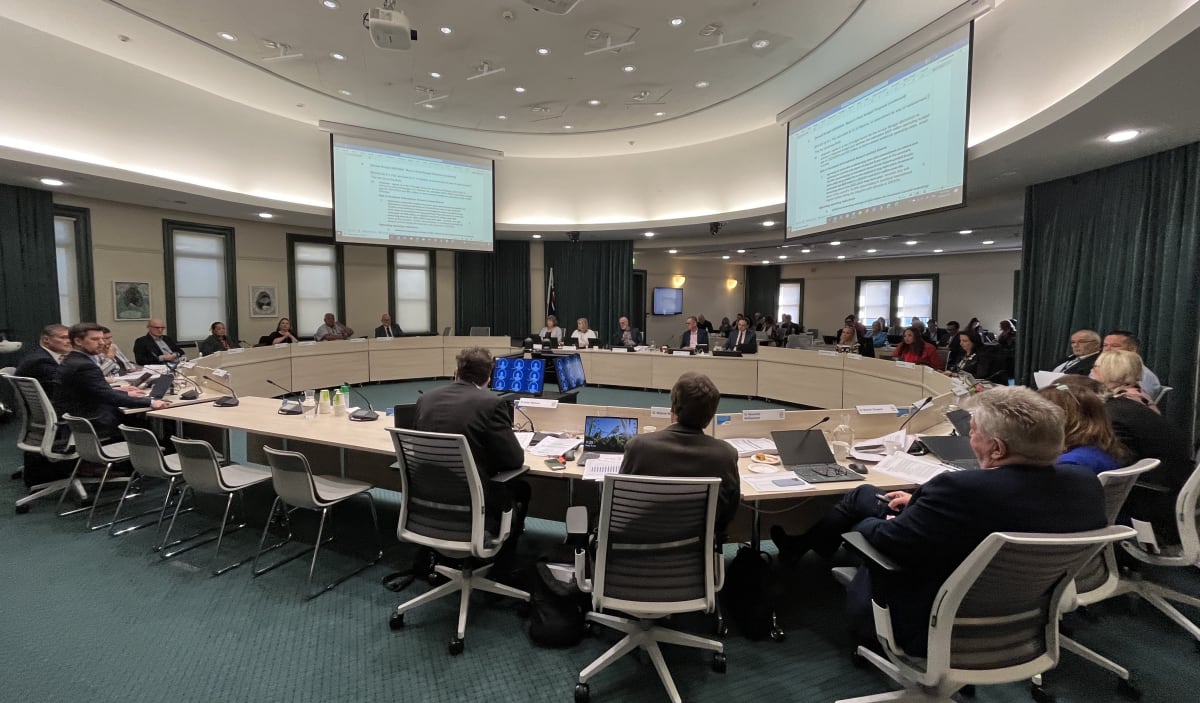
Local politicians in Auckland have full-to-the-brim inboxes from a campaign to sway the vote against Māori wards
Auckland councillors will vote today on whether to introduce Māori seats for the 2025 local body election.
The councillors will have the option of voting against the earmarked seats entirely, or opting for a range of models that would provide one, two or three dedicated seats.
READ MORE:
* Auckland Council asks if Māori should get two more seats at the table
* The Detail: co-governance at the coalface
A vote for the seats would see the region join six of 11 regional councils and 29 of 67 territorial authorities to have specific Māori constituencies – just under half of the country’s councils.
But a co-ordinated mass email campaign from former National Party leader Don Brash and right-wing lobby group Hobson’s Pledge, plus consultation revealing some general public opposition, may throw a spanner in the works for enhancing Māori representation.
In a $169,520 month-long consultation period that received just under 12,000 submissions, feedback from Māori entities (87 per cent), Māori individuals (54 per cent) and local boards (85 per cent) was in support of the seats.
The wider public, however, had 68 percent of individuals, and 54 percent of organisations, opposed.
The reasons behind the feedback fell broadly into two camps. Those in support of the seats cited equity as a main concern and saw the parliamentary model of specific Māori seats as the most democratic means of ensuring this.
The parliamentary model uses a formula ensuring elected Māori representation is proportional to the Māori electoral population of an area and would currently grant Auckland one dedicated seat.
Those opposed to the seats cited equality as a concern and viewed the current system as the most democratic.
Opposition to the seats has been bolstered by Hobson’s Pledge calling on supporters to email elected members, and providing them a templated message to send.
Manurewa councillor Angela Dalton said she’d received 1247 of these emails over the past five days.
She said a common theme in the campaign was accusing Māori seats of allowing democratic ‘double-dipping’. A common theme in the feedback opposing the seats was that they would contradict the ‘one person, one vote’ system.
However, Māori wards would still only allow constituents one vote.
Dalton said the idea of ‘double-dipping’ could come from Māori representation already being partially in place through the Independent Māori Statutory Board, whose members serve on some council committees and who participate and advise at council meetings, or the Tūpuna Maunga Authority, a co-governance model for the city's volcanic cones.
But she stressed groups like these had a different role to councillors sitting around the table.
“It’s a completely different role, but people see this as too much of a Māori voice,” she said. “So they cite racism, which is a little bit rich considering that I would say the European has been in power for 183 years, and now that there’s an inkling that Māori might get more of a voice… people are anxious about it.”
When it comes to the results of the consultation, Dalton said the European bias in council engagement skews the outcome.
“I've always spoken to us not engaging well with Māori, or Pasifika, or any other culture except for European,” she said. “Council needs to do a better job of engaging with all Aucklanders, because the way that we do it now is not working.”
She said consultation often saw feedback from Pākeha in the 70 to 80 percent range, while other ethnicities responded far less.
In the case of Māori seats, those opposed were more likely to be European or Asian and be 35 years or older.
Two-thirds of respondents were European – an overrepresentation compared with Europeans being 54 percent of the Auckland region’s population.
Meanwhile, 57 percent of the submitters were between 45 and 74 years, and only 8 percent were under 25.
Male respondents were also over-represented, especially in groups 45 years and older.
There’s also a geographic trend in who submitted. Local board areas with the highest number of submitters included wealthier neighbourhoods like Ōrākei (932 submitters), Hibiscus and Bays (837 submitters) and Howick (897 submitters).
Meanwhile, areas like Manurewa, Papakura, Whau and Puketāpapa had low numbers of individual submitters per capita.

Whau councillor Kerrin Leoni was saddened to see councillor inboxes flooded with opposition to Māori wards.
“We know that they’ve worked really successfully in other parts of the country, I think more than half of the country now has Māori wards in place and the sky hasn’t fallen,” she said.
“The feedback that I’ve heard today from those that have already got Māori wards in place is that it’s going really well, so it’s sad when you see these kind of emails come through and you almost feel like they haven’t actually done that piece of research themselves.”
She said lines in the emails saying Māori wards went against ‘one person, one vote’-style democracy were the result of disinformation.
“It’s scare-mongering,” she said. “They’re really trying to push people to believe things that aren’t true.”
In Auckland, it is possible to have more than one vote – but that’s done by owning multiple properties rather than having Māori whakapapa.
Both Leoni and Dalton expected today’s vote to be close.
Councillors opposed to Māori wards will be feeling validated by the feedback. Meanwhile, Brash has directed supporters to show up to the council chambers in solidarity with no-voters.
It promises to be another tense day for the governing body of Auckland Council, as each elected member is forced to take a stand.







